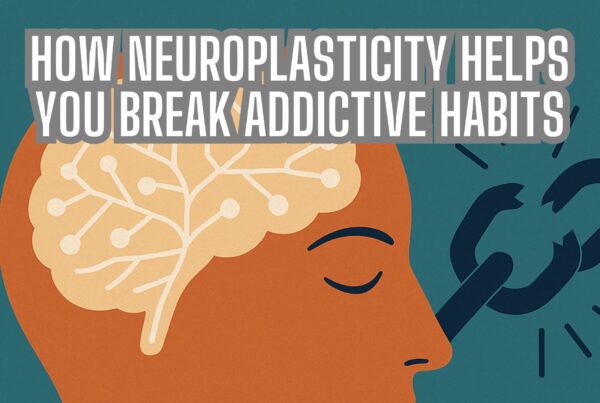Daily Maintenance in Addiction Recovery: A Cornerstone for Lasting Change
In the journey of overcoming addiction, daily maintenance is not just a practice but a lifeline. This critical aspect of addiction recovery encompasses various therapeutic approaches and self-care routines that collectively support individuals in maintaining sobriety and mental wellness. Often, people in recovery may feel a sense of relief from their symptoms, leading them to believe they can relax their guard, only to find themselves facing relapse. This blog delves into why daily maintenance in addiction recovery is essential, how it intersects with the cycle of change, and the profound significance of the ‘one day at a time’ approach.
The Role of Therapeutic Approaches in Daily Maintenance
Therapeutic modalities such as Acceptance & Commitment Therapy (ACT), Cognitive Behavioural Therapy (CBT), and Neuro-Linguistic Programming (NLP) play a vital role in daily maintenance. These therapies empower individuals to understand and alter their thought patterns, behaviors, and emotional responses, which are crucial for sustaining recovery. For instance, ACT focuses on accepting thoughts and feelings without judgment, while CBT aims to identify and change negative thought patterns. NLP, on the other hand, helps in reprogramming the mind to respond differently to triggers.
In these therapies, mindfulness is a common thread. It encourages individuals to stay present and aware, reducing the likelihood of falling back into automatic, destructive habits. Mindfulness practices, integrated into daily routines, can significantly bolster the recovery process.
Understanding Relapse and the Cycle of Change
The journey of addiction recovery is rarely linear. Relapse is often a part of this journey, making daily maintenance even more crucial. Understanding the cycle of change provides insight into why relapses occur. This cycle includes stages like contemplation, preparation, action, and maintenance. After a period of maintaining sobriety, individuals might experience the ‘termination’ stage, where the risk of relapse diminishes. However, complacency in this stage can lead to a lapse, pushing the individual back into earlier stages of the cycle.
Daily maintenance in addiction recovery helps in navigating this cycle more effectively. It equips individuals with tools and strategies to stay in the maintenance stage longer and to handle potential relapses with greater resilience.
Feeling Stuck With This Habit
Many people fear that they’re not going to be able to kick their habit. The reality is that breaking a habit does take some work. It doesn’t matter if it is alcohol or drug addiction, or bad eating habits, all of them require you to do ‘the work’. ‘The work’ begins when you’re in session with your therapist however the real work continues each day while you’re between sessions. With each passing day that you successfully do the work, you’ll learn more about that habit and how to break it.
Continue to do the work. One day you’ll discover that the old habit doesn’t have the same control over you any more. At that point, you’re likely to still need to do maintenance however you’ll have the skills needed to manage it successfully.
The Power of ‘One Day at a Time’ in Recovery
The philosophy of ‘one day at a time,’ popularized by support groups like Alcoholics Anonymous (AA), is a cornerstone in the realm of addiction recovery. This approach encourages individuals to focus on the present day, rather than becoming overwhelmed by the prospect of lifetime sobriety. It breaks down the recovery process into manageable segments, making the journey seem less daunting.
Embracing ‘one day at a time’ as part of daily maintenance involves setting daily goals, engaging in daily self-care practices, and reflecting on daily achievements and challenges. This approach keeps individuals grounded in the present, reducing anxiety about the future and regret about the past.
Integrating Solution-Focused and Gestalt Therapies into Daily Maintenance
Solution-Focused Therapy (SFT) and Gestalt Therapy offer additional perspectives that enrich daily maintenance strategies. SFT, with its emphasis on finding solutions rather than dwelling on problems, encourages individuals to identify and utilize their strengths in overcoming daily challenges. Gestalt Therapy, focusing on the here and now, helps individuals become more aware of their thoughts, feelings, and actions in the present moment.
These therapies, when integrated into daily routines, provide a well-rounded approach to maintenance, addressing various aspects of an individual’s life and recovery journey.
The Importance of Polyvagal Theory in Understanding Daily Maintenance
Polyvagal Theory offers a unique lens through which to view daily maintenance in addiction recovery. This theory explains how our nervous system responds to stress and trauma. Understanding this can be instrumental in developing self-regulation strategies as part of daily maintenance.
By incorporating practices that activate the parasympathetic nervous system, such as deep breathing or mindfulness, individuals in recovery can better manage stress and emotional responses. This understanding is pivotal in maintaining sobriety, as stress and emotional dysregulation are often triggers for relapse.
Hypnotherapy: A Complementary Tool in Daily Maintenance
Hypnotherapy can be a valuable complementary tool in daily maintenance for addiction recovery. It works by accessing the subconscious mind, helping to reframe negative beliefs and reinforce positive behaviors and coping mechanisms.
Integrating hypnotherapy sessions into the regular maintenance routine can enhance the effectiveness of other therapeutic approaches. It can provide deep relaxation, reduce cravings, and strengthen the resolve to maintain sobriety.
Daily Maintenance in Addiction Recovery
Daily maintenance in addiction recovery is a multifaceted approach, encompassing various therapeutic techniques and self-care practices. It is essential for navigating the cycle of change, preventing relapse, and living by the ‘one day at a time’ philosophy. By integrating these diverse approaches into daily life, individuals in recovery can build a strong foundation for lasting change and wellness.
Release Hypnosis Melbourne Hypnotherapy
Since 2015, Lawrence Akers has been working under the name Release Hypnosis offering Hypnotherapy and ACT based work to the people of Melbourne or an online service. Based on St Kilda Rd, Release Hypnosis is an easy and convenient location to get to and accessible by the ANZAC station train and tram stop. Release Hypnosis can help with a wide range of presenting issues, and I offer a free 30 minute no obligation discovery call for those who are unsure if hypnotherapy is the right way forward for them.
Book Your FREE 30 Minute Consultation With Release Hypnosis NOW!
You may also like to read:
Discovering Purpose and Values: A Path to Mental Well-being
Can’t Visualise in Hypnosis? Here’s What You Can Do Instead.
Dealing with Financial Stress and Crisis: Finding Peace Amid Turbulence
What Is The Success Rate of Hypnosis?








